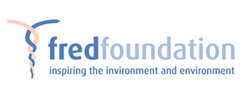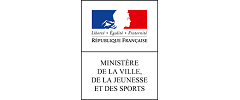The World Needs a Strong Aarhus Convention
NGOs defend an effective and reliable mechanism for environmental human rights
29.06.2011 | Joint Press Release European Eco Forum
[Chisinau, Moldova, 29 June 2011] Today, the Fourth Meeting of the Parties to the Aarhus Convention (1) (MOP-4) started in Chisinau, Moldova. For three days, negotiators from 44 signatory countries will be discussing the status of the implementation, the work programme for the coming years, the compliance mechanism and individual cases of non-compliance, public participation in international fora (PPIF), and whether to open the Aarhus Convention to other countries outside the UNECE region (2)
Police detained 490 activists during a silent protest last week in Minsk. Belarusian powers systematically repress citizens, in particular environmental activists protesting against the construction of a new nuclear power station. (3) Activists have also been brutalized in Kazakhstan. In Ukraine, construction industry lobbying seriously weakened environmental rules. These incidents show the importance of the Aarhus Convention and its vanguard, mandatory compliance mechanism.
The Convention on Access to Information, Public Participation in Decision-Making and Justice in Environmental Matters aims to protect active citizens in cases like these. It takes governments to task for violating human rights and environmental laws. It serves as a model for the improvement of other
international fora, such as the Conventions on Climate and Biodiversity.
Since the last Aarhus Meeting of the Parties (MOP-3) in 2008, the number of cases brought before of the Compliance Committee by citizens, organisations and countries has increased three-fold - from about 10 to 35 - showing not only the need for this instrument but also the need to strengthen it further. “Now, each country has to live up to the principles of the Aarhus Convention,” said Mara Silina, Public Participation Coordinator of European ECO Forum. "The devil is in the countries.”
The European ECO Forum calls upon the Access to Justice Task Force and Parties to find ways that give NGOS effective and affordable access to justice for example through the reduction of court fees, national and region-wide financial support for public interest environmental litigation, and removal of
restrictions on justiciability. "These issues need systemic solutions, not case by case solutions," stated John Bonine, a representative of Environmental Law Alliance Worldwide.
We also call upon European Union countries to lift their veto of the EU Commission’s directive for access to justice. The European ECO Forum expects that the negotiations during this Aarhus meeting will convince more countries to ratify the Almaty Amendment on Access to Information about the Release and Trade of Genetically Modified Organisms (GMOs). Among other issues, it regulates which information may not be kept from the public as "confidential" - an issue of concern worldwide. The European ECO Forum also aims to boost cooperation with other international fora, in particular the Cartagena Protocol on Biosafety.. Even as the Convention text was amended in 2005. Six year these changes still need one more ratification to come into force. “We underline the necessity of additional efforts for said Illya Trombitsky, from Eco-TIRAS, Environmental Association of Dniester River Keepers (Moldova).
The European ECO Forum (4), present with more than 100 organisations and representatives from 35 countries in Caucasus, Central Asia, Europe and the rest of the world, calls upon all negotiators to remove barriers to the implementation of and compliance to the Aarhus Convention and move towards
real environmental democracy: access to information, public participation and access to justice, along with the right to a healthy and sustainable environment.
Contact:
Mara Silina, Public Participation (Aarhus) Campaign Coordinator
European Environmental Bureau/European ECO Forum
Email: mara.silina@eeb.org
In Moldova: +37369770350
In Brussels: +32 2 289 1090
Information for journalists:
.(1) The Aarhus Convention is a UNECE instrument adopted in 1998 in the Danish city of Aarhus a the Fourth Ministerial Conference in the Environment for Europe process. It is a transcendental new kind of agreement linking environmental protection and human rights, sustainable development,
accountability and citizen involvement in governance. It is open for UNECE countries. More information can be found at http://http://www.unece.org/env/pp/mop4.htm
(2) The United Nations Economic Commission of Europe (UNECE) includes Europe, Central Asia, Israel, the USA and Canada
(3) For more information on Belarus contact Tatyana Novikova, +375291065901,
novikova@gmail.com
(4) The European ECO Forum is an ad hoc coalition of environmental citizens’ organisations (ECOs), representing civil society positions at the negotiating table during high level talks on implementation and compliance in Chisinau from June 27 through July 1.
































